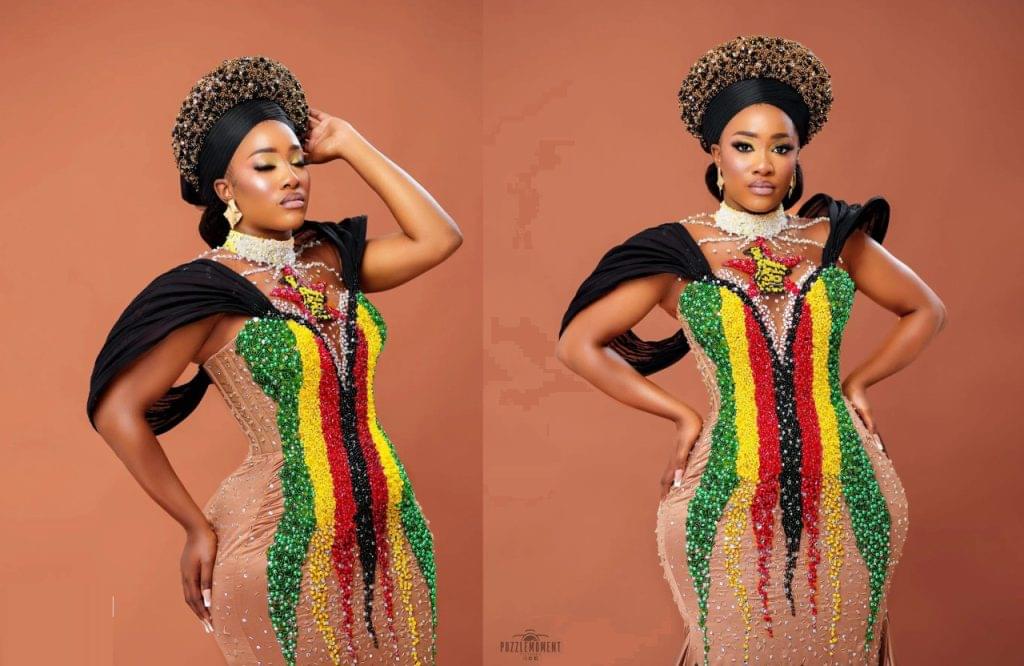THE line-up for this year’s edition of the Bulawayo Shutdown, a gig that always coincides with the end of the Zimbabwe International Trade Fair (ZITF) is perhaps one the most star-studded that the city has hosted in recent years.
On the night of 27 April, South African hip-hop superstars Emtee and Kwesta will be joined on stage by amapiano sensations, Aymos and Marumba Pitch in what will be, for all of them, a rare outing in the City of Kings and Queens.
As if that is not enough, the Gafa president, Winky D, is also set to grace the stage, exactly a year after he gave another statesman-like performance in Bulawayo at the same event.
With a roster that will offer dancehall, amapiano and hip-hop performances, it seems as if the promoters left nothing to chance, ensuring that the tastes of every reveller is covered with their high-powered line-up.
If this same event were to be scheduled on any other day, there would be doubt that this gig would carry the weekend.
The line-up and timing of the event, as it falls on a day when the city would be on a high from the end of the trade fair, seem like great ingredients for the making of the perfect gig.
Alas, this might not be enough to carry the day. Only a few hours after the last notes have been sung at Queens Sports Grounds, Munch and Sip, what has been consistently the most successful gig in Bulawayo over the last few years, will be preparing to kick into high gear.
On the surface, Munch and Sip and the Bulawayo are polar opposites.
While Munch and Sip reaches its peak during the day, the Bulawayo Shutdown feasts on the night-time revellers, with most of the crowd joining festivities closer to midnight.
In addition, while Bulawayo Shutdown has over the years relied on star-studded line-ups to pull impressive crowds, Munch and Sip has used mostly local artistes to keep festival attendants entertainment.
While they might not seem to share a lot of similarities, their scheduling over the same weekend has led many to question whether they both pull large crowds on what is usually one of the busiest weekends in Bulawayo.
“Looking at the environment in Bulawayo these days, one can tell that cash flow and spending power are very limited, meaning that people cannot spend money on two shows in one weekend,” said veteran promoter Joe Tha OG.
“That means that even if you like both you have to choose one between the two. That simply means that between these two big events, the crowd will have to split between the two. Who is going to have more people? It will depend on who’s more favourable in the eyes of the public. The target audience, the marketing and other factors will play a part in the final outcome.”
Joe said while revellers will be spoilt for choice, for promoters it meant that there was a high chance that they might not hit the profit margins they are targeting.
“It is not always ideal to have two big events like this on the same weekend. It prevents the promoter from maximising on income, which is their main objective. At the end of the day if there’s another option that people can choose from then things become complicated. Ideally, you want to see one show per weekend in Bulawayo but in a case like this, promoters will just have to share the crowd because people have to choose between the Saturday and Sunday gigs,” he said.
Dalubuhle Sibanda of Umahlekisa Events said while they might be scepticism on whether two shows on the same weekend would succeed, it was important to note that the two events drew different crowds.
“I think we need to understand that the entertainment sphere has changed over the years. If you look at the current situation, I would say that lifestyle events have a bigger niche on the entertainment market. When we speak of lifestyle events, we are talking about the likes of Garden of House, Munch and Sip, Paint and Sip and events likes that. It’s no longer the same as it was long ago when promoters had a one-size-fits-all approach to event planning.
“This makes it easier to stage two or more events on the same weekend because the target market for those kind of events might be different from your traditional gigs. Ever since daytime events came into play, the landscape completely changed because we started seeing people who wouldn’t be out necessarily very late at night for our more traditional events now frequenting gigs that start earlier in the day like Munch and Sip,” he said.
Sibanda said there was a need for promoters to rethink how they viewed the scheduling of events, as changes in the country’s economy has meant that some factors that affected gigs in the past no longer mattered.
“I think we also have to look at the patterns of employment nowadays. A lot of people are not formally employed and they don’t have to wait for month end to get paid. So promoters don’t even necessarily have to wait for people to get paid which was the case back in the day. Nowadays people get their money at any point in the month. Most of the people who attend shows are youths and a lot of them are not formally employed. So, the way the economy is set up dispels some of the theories that we used to have around events.
“I think with that in mind, we can see two events in one weekend because we are living in different times now. Young people are making money and they want the exclusivity that these events bring. So you will have a certain crowd that believes that they are better off at Munch and Sip. So, as far as the big weekend goes, they probably have made up their minds about where they will go,” he said.
Hip-hop artiste Asaph said while some might have reservations about the scheduling of the two mega gigs, for artistes in Bulawayo, it was the perfect scenario, as more musicians would make money from performances in the two events.
Asaph also said that increased competition among promoters would also result in better events.
“It’s a good thing in my opinion that these two big events are happening on the same weekend. If you look at other places with vibrant entertainment scenes, huge events happen even on the same day and people get to choose what they fancy. I feel like it encourages competition and forces promoters to step up their marketing game and also improve the quality of their events. So, everyone will be operating at their highest level.
“It might affect their bottom line but I feel like the events attract two different crowds. Munch and Sip is more of a chilled event whereby you chill with people while you enjoy and the Shutdown is a concert for people who are going to watch the stage. Artistes are getting booked and paid and for me that’s always a win. We need more of this because it will increase the quality of the events as people try to fill up venues. I see that Shutdown has been marketing their event heavily while Munch and Sip are also relying on the power of their brand name. We will see how it goes,” he said.
Source Zimbabwe Situation











